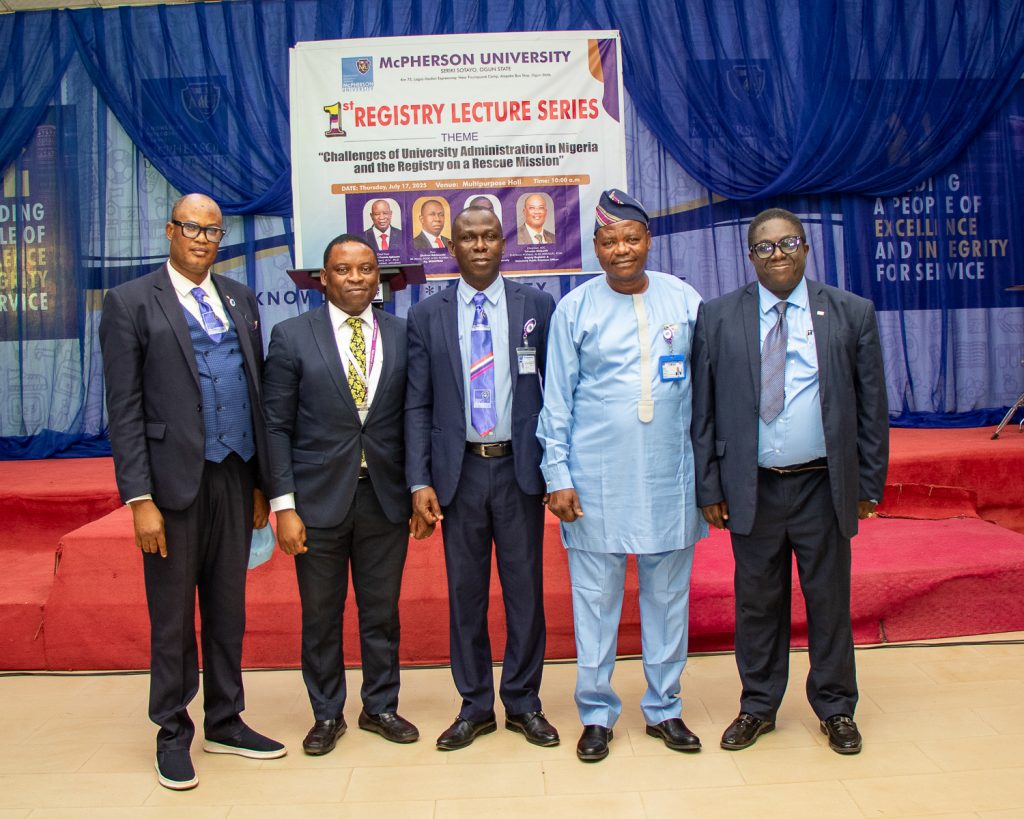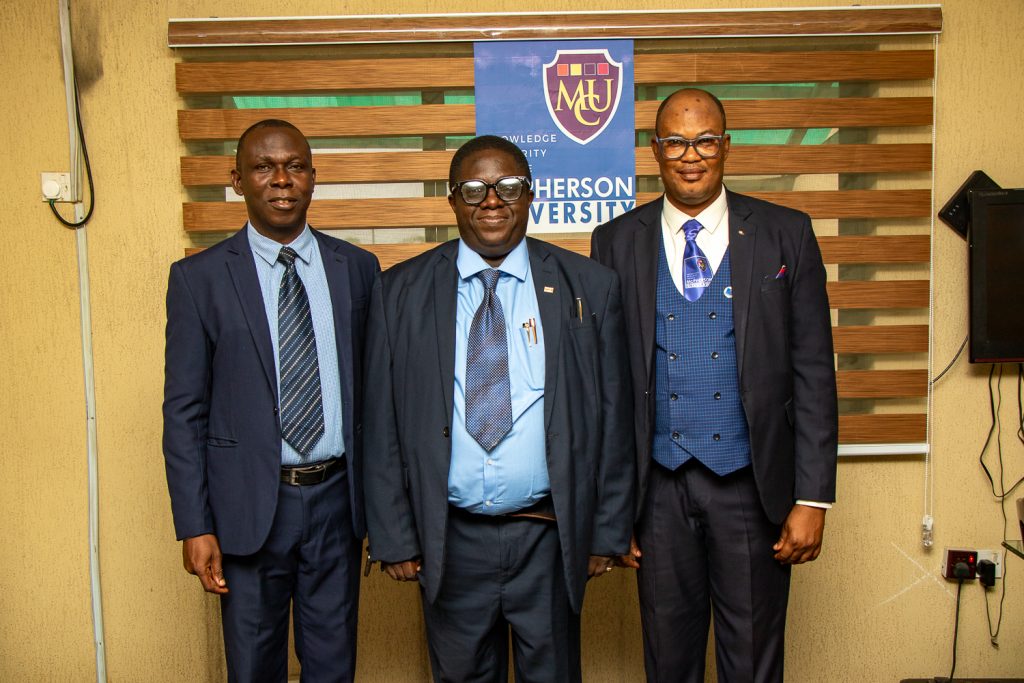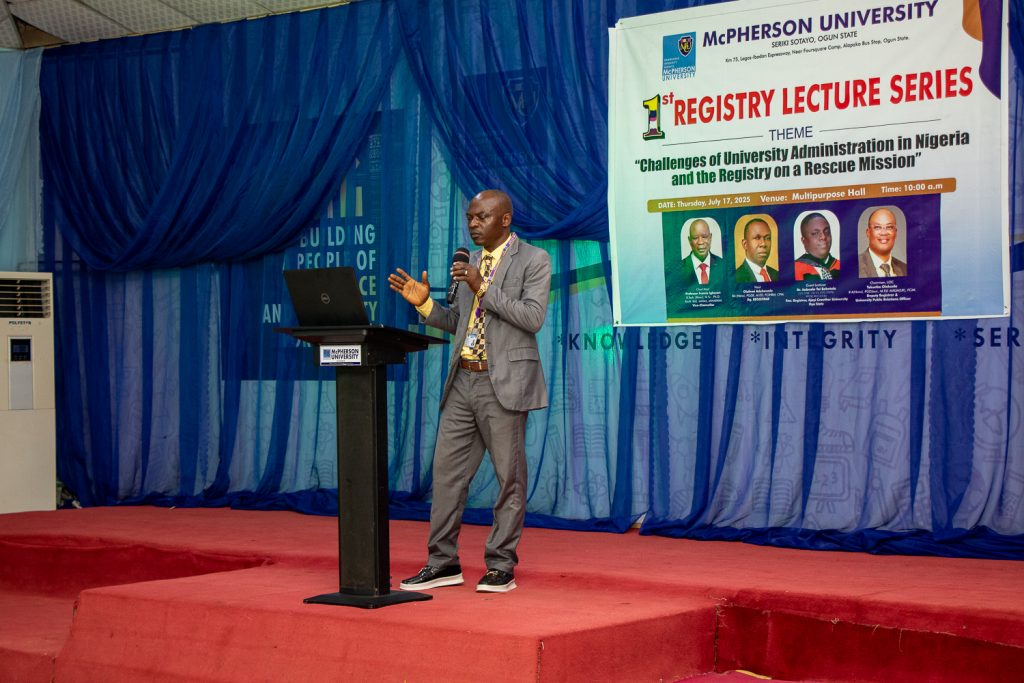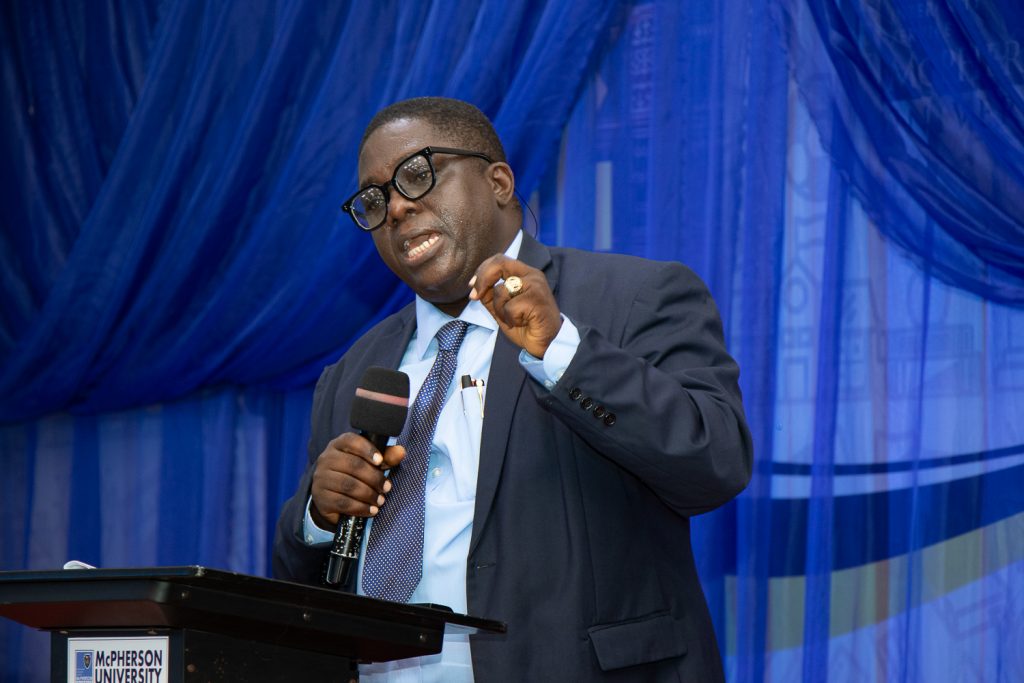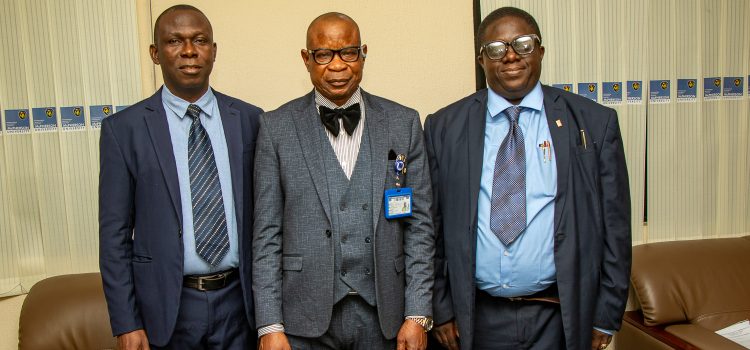In a historic move to enhance administrative excellence and spark intellectual discourse, McPherson University, Seriki Sotayo, Ogun State, held its maiden Registry Lecture on Thursday, July 17, 2025. The event marked a significant milestone in the institution’s journey towards repositioning its administrative framework for greater efficiency and relevance. The lecture, themed “Challenges of University Administration in Nigeria and the Registry on a Rescue Mission”, featured thought-provoking presentations and a robust question and answer session.
The Vice-Chancellor, Professor Francis Adegbaye Igbasan, delivered the keynote address, applauding the initiative led by the Acting Registrar, Mr. Olufemi Adebowale. He highlighted the evolving role of university administrators and the importance of viewing registry functions as a science requiring innovation, discipline, and professionalism. “The registry must be agile, professional, and data-driven,” Professor Igbasan noted. He called on all administrative staff to embrace creativity, continual skill upgrade, and collaborative work ethics to remain relevant in today’s dynamic academic environment, as those in academic are equally seeking the post of registrar, which makes it more competitive.
Addressing participants at the event, The Acting Registrar, Mr. Olufemi Adebowale described The Registry as “the institutional memory of the university, the custodian of due process, and the enabler of smooth operations across academic and administrative divides.” And added that If the university is to function seamlessly and with integrity, then the Registry must be agile, professional, data-driven, and committed to excellence.
Delivering the main lecture, Dr. Jadesola Tai Babalola, former Registrar of Ajayi Crowther University, emphasized that registries should not be seen as mere custodians of records, but as strategic partners in university governance. He examined the global best practices that Nigerian universities can adapt, while stressing the importance of aligning administrative policies with local realities. His lecture detailed strategies for overcoming bureaucratic inefficiencies, promoting digital integration, and enhancing academic support systems.
In a futuristic complement to the main lecture, Dr. Adesola Falade from McPherson University’s Software Engineering Department presented a compelling session on “Artificial Intelligence in Modern University Administration: Perspectives on Trends and Ethics.” He showcased how AI technologies, from chatbots to predictive analytics are transforming administrative operations globally, advocating for ethical data practices and responsible automation within university environments.
Chairman of the Local Organising Committee, Mr. Tokunbo Olakunle, in his address, described the event as not just symbolic, but transformational. He noted that the Registry Lecture Series is envisioned as an annual tradition that will “challenge practices, engage minds, and inspire administrative transformation.” He appreciated the Vice-Chancellor for his visionary leadership and the Acting Registrar for conceptualizing and pushing through the idea despite initial resistance.
Participants at the event included visiting registrars and administrative officers from tertiary institutions across Ogun State and beyond. The interactive session that followed the lectures provided a platform for robust discussions on pressing challenges such as staff capacity development, digital transformation, policy harmonization, and student-centered administrative services. Contributions from the floor enriched the dialogue and strengthened the lecture’s impact.
Throughout the event, the role of the Registry as the lifeblood of university operations was underscored. Discussions centered on repositioning the Registry as a change agent—one that must lead in safeguarding academic integrity, policy formulation, stakeholder communication, and the digitization of academic services. Case studies of successful administrative reforms from institutions like UNILAG, OAU, and ABU were cited as models for strategic planning and performance management.
In his closing remarks, the Vice-Chancellor emphasized that administrative staff must see themselves as ambassadors of excellence. “You are role models and problem solvers. Every interaction is an opportunity to demonstrate integrity and professionalism,” he charged. He also reaffirmed the University’s commitment to continuous staff development and organizational innovation.
The success of the maiden lecture not only set a new standard for administrative engagement at McPherson University but also ignites a renewed commitment among staff to rise to the challenges of contemporary university governance.
